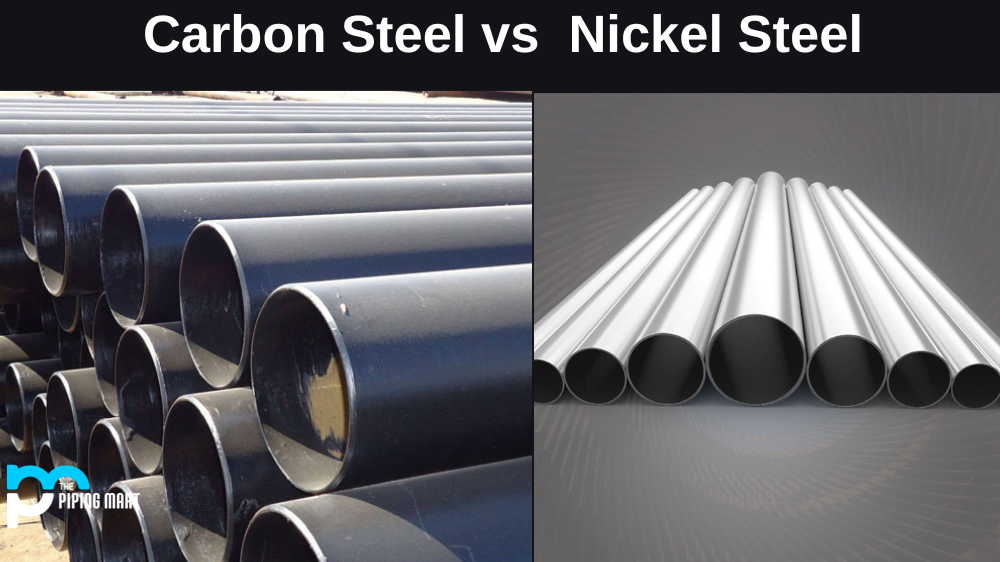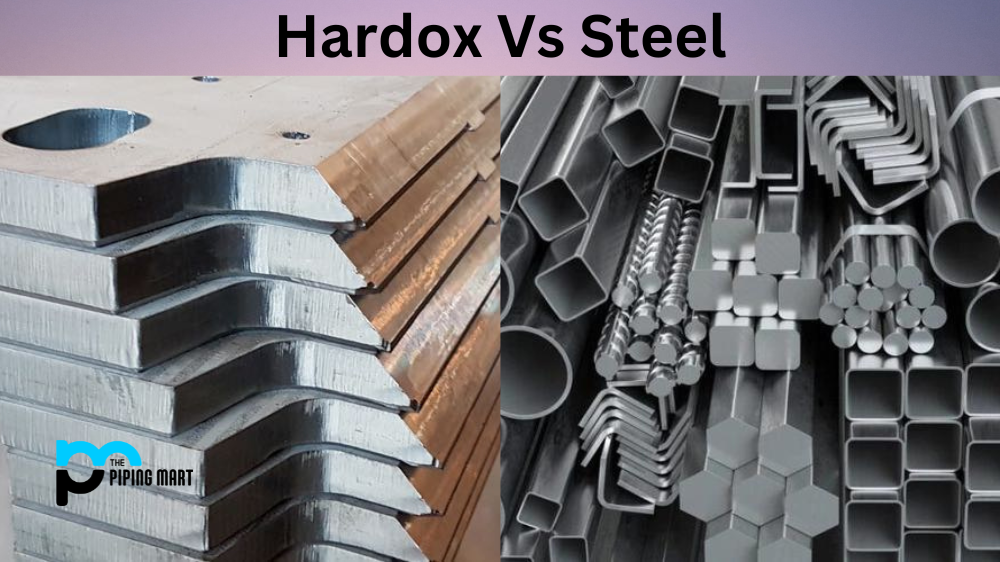If you’re looking for a metal that can withstand wear and tear, you’ve probably heard of carbon and nickel steel. But what exactly are these metals, and how do they differ? Let’s take a closer look at carbon steel and nickel steel properties so you can decide which is right for your needs.
Carbon Steel
Carbon steel is an alloy of iron and carbon, with the amount of carbon ranging from 0.2% to 2%. Depending on the grade, it also contains other elements such as manganese, silicon, sulfur, or phosphorus. Carbon steel is known for its strength and durability. It has excellent machinability and weldability properties, making it ideal for many industrial applications. However, its relatively high carbon content (compared to other steels) makes it more susceptible to corrosion.
Nickel Steel
Nickel steel is a type of alloy that contains between 8% and 35% nickel by weight. This makes it much stronger than regular steel but also more expensive. Nickel steels are also highly resistant to corrosion because of their higher nickel content which prevents oxidation. They are often used in manufacturing heavy machineries such as bulldozers or ships due to their superior strength capabilities compared with regular steel. They are also well-suited for use in chemical plants or offshore drilling rigs where corrosion resistance is paramount.
Difference Between Carbon Steel and Nickel Steel
Composition
Carbon steel and nickel steel are both alloys, meaning they are made by combining two or more chemical elements. Carbon steel is an alloy of iron and carbon, while nickel steel is an alloy of iron and nickel. The main difference between the two alloys is their composition; carbon steel contains more carbon than nickel steel.
Properties
The different composition of carbon steel and nickel steel also results in different properties. Carbon steel is harder than nickel steel but is also more brittle. Nickel steel is less brittle than carbon steel and has a higher melting point.
Uses
Carbon steel and nickel steel both have a variety of uses. Carbon steel is commonly used to make tools, machinery, pipes, and other types of tubing. Nickel steel is often used in the aerospace industry and in the production of coins and jewelry.
Cost
Another difference between carbon steel and nickel steel is their cost. Carbon steel is generally less expensive than nickel steel due to the lower price of iron relative to nickel. However, the price of both alloys can vary depending on the specific composition and quality of the metals used.
Availability
Carbon steel and nickel steel are both widely available metals. Carbon steel is produced in large quantities worldwide, while nickel production is more concentrated in a few countries, such as Canada, China, and Russia
Conclusion
In conclusion, both carbon steel and nickel steel have their unique advantages depending on the application they’re being used for. Carbon steel is generally less expensive but more prone to corrosion, while nickel steel is stronger but more expensive due to its higher nickel content. Therefore when choosing between the two types of steel, consider your specific requirements carefully before making a decision! With this information in mind, we hope you now understand the differences between carbon steel and nickel steel so you can make an informed choice when selecting your following material!

Abhishek is a seasoned blogger and industry expert, sharing his insights and knowledge on various topics. With his research, Abhishek offers valuable insights and tips for professionals and enthusiasts. Follow him for expert advice on the latest trends and developments in the metal industry.




